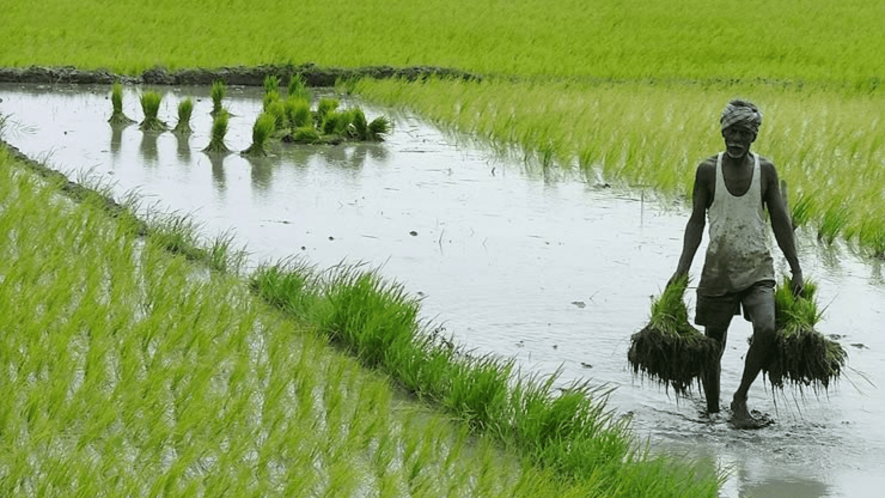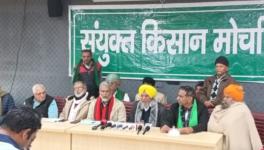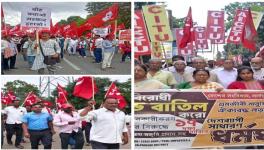Budget Brings Back Farm Laws Through Post-harvest PPP Model

Image Courtesy: Wikimedia Commons
Calling out the Modi government for its last budget before general elections, Samyukta Kisan Morcha, a collective of farmers' organisations across the country, said that the budget has brought back the repealed farm laws into action through post-harvest public private partnership policy announced by finance minister Nirmala Sitharaman.
The morcha leaders said that the farmers will not tolerate this betrayal by the Union government and burn the copies of budget on February 3 across the country.
In a statement, the morcha said that as far as agriculture is concerned, the proposal in the budget to “promote private and public investment in post-harvest activities including aggregation, modern storage, efficient supply chains, primary and secondary processing and marketing and branding” is nothing but handing over the agriculture sector in a platter to the corporate houses- both domestic and foreign.
It added, ”Not opening the agriculture to foreign and Indian monopoly capital for profiteering has been the policy of the state of India since independence. It helped to ensure self-reliance and food security of the country. Instead of strengthening the public sector, cooperatives and the MSMEs, allowing corporate monopoly houses to take over post-harvesting operations is a policy change and that amounts to the back entry of the three black Farm Acts that Modi Government was forced to repeal due to the pressure of historical farmers' struggle at the Delhi borders.”
Ashok Dhawale, President, All India Kisan Sabha, told NewsClick that the budget clearly shows where the agriculture sector is being pushed by the Union government.
”There has been a cut of 81% in allocation to agriculture and allied activities in comparison with previous year’s budget. Secondly, the introduction of public private partnership in post-harvesting processes is simply a handover of the sector to big corporate. This is indeed a return of the farm laws. What do you mean when you are saying that companies can opt for public private partnership model in supply chain management? It clearly means that private companies will have greater say in procurement.”
He added, ”The allocation for fertiliser subsidy in 2024-25 is Rs 87,339 crore less than the actual expenditure in 2022-23. The allocation for food subsidy is Rs 67,552 crore less than the actual expenditure in 2022-23. The anti-farmer attitude of the Modi government is seen in the fact that, year after year, there are budgetary cuts in allocations to key areas such as fertiliser and food subsidies, as well as for important schemes such as MGNREGA. This insensitivity in the wake of the widespread crisis exposes its apathy to the plight of the poor.”
He went to add that the budget further shows massive cuts in rural development, MGNREGA, rural employment, Pradhan Mantri Krishi Sinchai Yojana, food storage and warehousing, plantations, crop husbandry, flood control and drainage, land reforms, fertiliser subsidy, food subsidy, dairy development, soil and water conservation, irrigation, nutrition, rural roads, housing, education and health.
Allocation of resources for women and children, and for Scheduled Castes and Tribes, has also been cut drastically. There has been no allocation to ensure that the long-standing demand of the farmers for ensuring Minimum Support Prices as per the C2+50% becomes a reality.
Get the latest reports & analysis with people's perspective on Protests, movements & deep analytical videos, discussions of the current affairs in your Telegram app. Subscribe to NewsClick's Telegram channel & get Real-Time updates on stories, as they get published on our website.
























